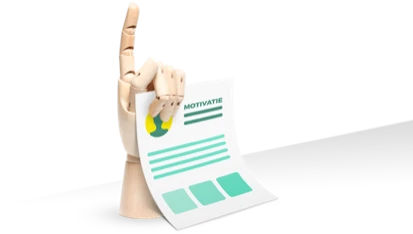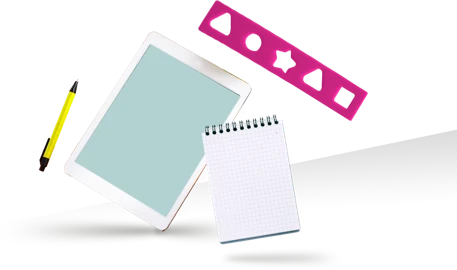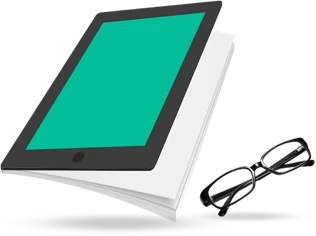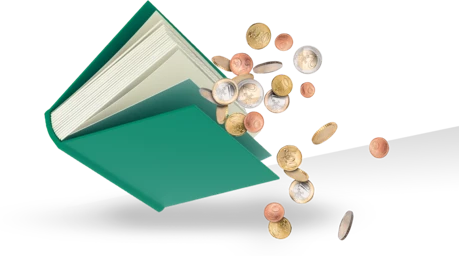Wo master - Taal en Communicatie
Taalwetenschappen
Deze opleiding heet ook wel:
Linguistics: Language and Society
Varianten:
Linguistics: General Linguistics, Taalwetenschappen: Vertalen

Over de opleiding Open dag: 9 februari

In the one-year Master’s programme Language and Society, you will develop the knowledge and skills to analyse your target language within its unique social context. Providing real-world examples of core linguistics concepts and theory, the programme focuses on the analysis of language use and variation. You will explore how and why languages vary within particular communities, differences in language use and policy, and the influence of issues such as multilingualism and computer-mediated communication.
This Master’s offers you the unique opportunity to specialise in one of seven European language communities. With experts in English, French, German, Italian, Scandinavian, Slavonic and Spanish, you will be able to develop your own expertise in the linguistics of your language of choice, all the while improving your own productive and receptive proficiency. The programme is designed to help you untangle the complexity of language in concrete ways. You will develop analytical skills that prepare you for your own research and learn to work with linguistic data, in particular collecting, processing, analysing and interpreting. You will also gain effective communicative competence, spo...
Keuzes binnen de opleiding
-
In the Master's in General Linguistics, you will first come to understand how human language works by comparing as many language systems as possible, including spoken languages from all continents, sign languages, child language, and language as used by people with a developmental or acquired disorder. You will then have the opportunity to specialise in one of four linguistic sub-areas: phonetics & phonology, syntax & semantics, language acquisition & disorders, or sign linguistics.
The Linguistics programme at the University of Amsterdam ranks among the leading institutions in the world. The programme is ranked highest in continental Europe and 17th in the world in the QS World University Rankings by Subject. It offers you the freedom to specialise in your area of interest. If you take as many courses as possible in your sub-area of interest and also write your term paper and thesis in that area, you will be able to spend approximately two-thirds of your time on your area of specialisation. You can also opt for a broader programme by writing your term paper in a different area than your specialisation and writing your thesis on a subject that crosses the boundaries of the four linguistic sub-areas.
Kennismaken met deze variant?
-
Het masterprogramma Taalwetenschappen: Vertalen is zowel een theoretische opleiding als een praktische voorbereiding op een toekomstig beroep in de wereld van het vertalen.
Goed vertalen vereist een groot aantal vaardigheden. In de eerste plaats uiteraard het adequaat omzetten van geschreven tekst uit de brontaal naar de doeltaal, in ons geval het Nederlands. Hierbij moet de vertaler permanent oog blijven houden voor zowel de context waarin de brontekst geschreven werd als de context van de doeltaal, waarin de lezer van de vertaling zich bevindt. Maar er komt meer bij kijken: revisie en redactie van vertalingen, de correctie ervan, de interpretatieverschillen die kunnen ontstaan... en soms moet er ook getolkt worden.
Het programma bouwt voort op de bachelormodule 'Theorie en praktijk van het vertalen'. In het programma ontwikkel je de vaardigheid om het vertalen als proces en de vertaling als eindproduct te beoordelen. Dit is de theoretische kant van de opleiding. De praktische kant is je specialisatie in de taal van je keuze, de brontaal van waaruit je gaat vertalen naar je doeltaal (en andersom).
Je hebt de mogelijkheid stage te lopen bij een vertaalbureau of een andere werkgever die met vertalers werkt. Omdat vertalers te maken krijgen met digitale techniek zijn ook enkele ICT-disciplines in de profileringsruimte van het curriculum opgenomen.
Kennismaken met deze variant?
Op Studiekeuze123 kun je informatie vergelijken. Op de website van de onderwijsinstelling kun je verder lezen als de opleiding je aanspreekt.
Bekijk instellingswebsiteBekostiging: Overheid
Toelating & selectie € 2.694 wettelijk collegegeld in 2026 / 2027

Om toegelaten te worden tot een opleiding moet je aan bepaalde eisen voldoen.

Toelatingseisen
Om aan een master te kunnen starten, heb je een bachelordiploma nodig.
Sluit je bachelor niet direct aan op de master, of stroom je door van hbo naar wo? Dan moet je meestal een schakelprogramma of premaster volgen. Lees meer over schakelprogramma’s (Schakelprogramma, is dat nodig? - Studiekeuze123)
Collegegelden
Wettelijk collegegeld
Wettelijk collegegeld
Wettelijk of instellingscollegegeld?
Heb je recht op het wettelijk collegegeld of betaal je het instellingscollegegeld? Gebruik onze Collegegeldwijzer
Hoe hoog is het instellingscollegegeld? Bekijk het op de website van de universiteit
Meer weten?
Belangrijke data

Mis geen belangrijke gebeurtenissen. Check belangrijke data ook bij de opleiding zelf.

-
9
februari 2026
Open dag / avond
Meer open dagen -
15
mei 2026
Aanmelddeadline opleiding -
1
september 2026
Start opleiding
Alle startmomenten
Tijdens de opleiding 43 eerstejaars

Geen enkele opleiding is hetzelfde. Kijk daarom naar de kenmerken van een opleiding.

Studeren bij deze instelling
Studieadvies
We hebben onvoldoende betrouwbare informatie over dit onderwerp.
Studieverloop
Diploma binnen 2 jaar
Meer weten?
Tevredenheid 3.5/5.0 algemene tevredenheid

Hoe beoordelen de (oud)studenten deze opleiding?

Nationale Studenten Enquête
Hoe tevreden waren studenten in 2025 over aspecten van deze opleiding?
|
Deze opleiding
Universiteit van Amsterdam |
Landelijk gemiddelde
Taalwetenschappen Vergelijk alle 7 opleidingen |
verschil | |
|---|---|---|---|
|
Studenttevredenheid
Meer informatie | 3.5 / 5 | 3.7 / 5 | |
| Sfeer | 4.0 / 5 | 4.2 / 5 | |
| Studiefaciliteiten | - / 5 | 3.9 / 5 | - |
| Studie opnieuw kiezen | - / 5 | 3.6 / 5 | - |
| Inhoud en opzet | 3.3 / 5 | 3.7 / 5 | |
| Aansluiting beroepspraktijk | - / 5 | 3.6 / 5 | - |
|
Studenttevredenheid
Meer informatie | 3.5 / 5 | 3.7 / 5 | |
| Sfeer | 4.0 / 5 | 4.2 / 5 | |
| Studiefaciliteiten | - / 5 | 3.9 / 5 | - |
| Studie opnieuw kiezen | - / 5 | 3.6 / 5 | - |
| Inhoud en opzet | 3.3 / 5 | 3.7 / 5 | |
| Aansluiting beroepspraktijk | - / 5 | 3.6 / 5 | - |
| Docenten | 4.1 / 5 | 4.0 / 5 | |
| Lesstof in het Engels | 4.8 / 5 | 4.6 / 5 | |
| Studiebegeleiding | - / 5 | 3.7 / 5 | - |
| Toetsing en beoordeling | 3.5 / 5 | 3.7 / 5 | |
| Betrokkenheid en contact | 3.9 / 5 | 4.0 / 5 | |
| Studiedruk |
Oordeel afgestudeerden
Over de studie Taalwetenschappen
Studeren met een ondersteuningsbehoefte
Veel studenten hebben tijdens hun studie behoefte aan extra voorzieningen of flexibiliteit in het onderwijs. Dit kan komen door een aandoening zoals dyslexie, een chronische ziekte, psychische klachten, maar ook topsport of ondernemerschap tijdens de studie. Studenten beoordeelden hoe tevreden ze zijn over de ondersteuningsmogelijkheden bij hun onderwijsinstelling.
Na afstuderen 48% van de werkenden vond een baan op niveau

Lees hoe het studenten van deze opleiding in de eerste periode na hun studie vergaat op de arbeidsmarkt.

Meest gekozen beroepen (na deze studie)
| Professoren en andere onderwijsgevenden in het hoger onderwijs | 20% |
| Audiologen en logopedisten | 9% |
| Specialisten op het gebied van onderwijsmethoden | 7% |
| Vertalers, tolken en andere taalkundigen | 7% |
| Onderwijsgevenden in het secundair onderwijs | 6% |
Werkgelegenheid na deze studie
Bij deze studie zijn de verwachtingen voor het vinden van een baan goed.
Een (substantiële) baan vinden...
duurt gemiddeld 14 maanden.37% krijgt een vast contract.
Match tussen studie en beroep
64% vond een baan binnen het vakgebied van de studie
48% vond een baan op het niveau van de studie
Startsalaris
Het startsalaris na deze studie is lager dan het gemiddelde van alle wo master studies.
€ 2.721
Geschatte startsalaris na deze studie
€ 3.150
Geschat van alle wo master studies
Gemiddelde werkweek
Hoeveel uur afgestudeerden gemiddeld werken bij hun huidige baan.
34 uur
Het percentage zelfstandigen
Het aandeel mensen dat werkt als zelfstandige of ondernemer.
5%
Contact Contact 020-525 1401

Meer weten over de opleiding? Neem contact op met Universiteit van Amsterdam

Adres
Roeterseilandcampus - gebouw J/K - Valckenierstraat 65-67
1018 XE
Amsterdam

Meer informatie
Bezoek ook de website van Universiteit van Amsterdam
Bezoek website van Universiteit van Amsterdam


